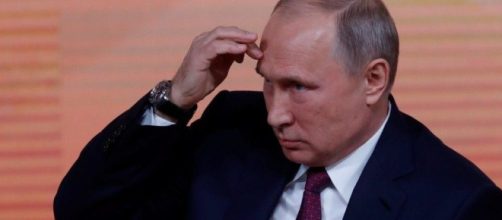The results of the Russian Presidential elections are in, and to absolutely no one’s surprise, Vladimir Putin has been re-elected for a fourth term as the country’s leader. There was literally no suspense or optimism or anything in this election. It wasn’t like, “Ooh, who’s gonna win?” There was only ever going to be one outcome. Putin’s been rigging elections for years to keep himself in office and it’s a known fact and he keeps getting away with it.
In the latest election, there was a little bit of hope, since the Kremlin announced that it was planning to make sure that this year’s election was different and that it was genuinely legitimate.
They encouraged the Russian people to vote, so that they would pollute the fudged numbers will some genuine votes from the people. Still, the opposition – sore losers to the cheating winner Putin – have called for a boycott of the election and sent people across the country to look into the polls for an chances of fraudulent activity. It should’ve been locked down.
Believe it or not, Russia does have a commission in place to ensure its elections are legit and the right person wins. They generally fail to do so, like every single time. But this year was supposed to be different. It wasn’t different, because Putin still won and he won by a staggering 74%, even though the Russian population generally doesn’t favour him.
But they tried more than usual, so that’s something to celebrate. We’re getting there.
Election commission reported hacking from ‘unfriendly’ nations
The Russian election commission in all their glory have announced that it was the subject of distributed denial of service hacking attacks from a grand total of 15 countries – “unfriendly” countries, in their words – but according to the news agencies run conveniently by the Russian government, the commission managed to deflect these hacks and keep the election fair. That’s the line, anyway.
In almost exactly the same way that American officials complained about the suspected Russian meddling in their 2016 Presidential election, this year, Russian officials are complaining that they suspect foreign nations of meddling in their own election.
As they say, what goes around comes around. But this is all still alleged, of course. Did Putin win legitimately? All of the reports from the state-run media seem to suggest so, but hey, maybe not, right?
Putin was running against seven other candidates
Putin was one of a total of eight candidates in last night’s presidential election. Among the other candidates were millionaire Pavel Grudinin of the Communist Party (ironic), and Putin’s political mentor’s daughter Ksenia Sobchak, who promoted liberal political views in her campaign (oh my God, imagine a Russia under a left-wing government and a female President! It’d be like Opposite Day!). So, there were plenty of good candidates besides Putin to choose from.
According to the polls, not a single candidate besides Putin won more than 7% of the vote in the election – and Putin won 74% overall, so something’s not right here. Something’s definitely fishy about this whole thing. With the option of a liberal woman, there’s no way that many people would vote in favour of Putin unless some foul play was going on here.
But then, the turnout for the vote wasn’t great (probably because they knew that their opinion and their vote mean nothing when the election result is dictated by hackers anyway). There are over 100 million eligible voters in Russia and only about 51.9% of them showed up. This is a bigger turnout than the 2012 election, but still not great. The voter turnout for the EU referendum was 72.2%, while the turnout for the 2016 US Presidential election was just 58%.

